2018 Royal Enfield Himalayan First Ride Review
The Sherpa of things to come
Royal Enfield designed and built this motorcycle in India, for Indians, a few years ago, with no plans really to export it. Why bother? India took over from China last year as the world’s biggest motorcycle market; Indians buy something like 48,000 motos a day (which probably includes lots of scooters and mopeds, but you get the picture – something like 17.7 million a year).
2018 Royal Enfield Himalayan
| Engine | 16.5/20 |
| Suspension/Handling | 12.5/15 |
| Transmission/Clutch | 8.0/10 |
| Brakes | 8.0/10 |
| Instruments/Controls | 4.0/5 |
| Ergonomics/Comfort | 9.0/10 |
| Appearance/Quality | 8.5/10 |
| Desirability | 8.0/10 |
| Value | 9.0/10 |
| Overall Score | 83.5/100 |
Then a funny thing happened. Royal Enfield opened its first subsidiary in the U.S. a couple of years ago, and hired an ex- Harley-Davidson man (20 years) named Rod Copes to head it up. Rod went, saw, and brought two Himalayans back to the USA two years ago – loaning them out to 75 different riders of varying experience to get their opinions. Their opinions were positive enough that now, after overcoming U.S. regulatory requirements (2018 is the first year for fuel injection), Himalayans are about to start flowing in from RE’s huge Chennai, India, factory.
After they flow into east coast ports in the US, the crates ship to RE’s new PDI Station in Coppell, Texas – that’s pre-delivery inspection – where each bike gets a thorough going-over by a mechanic before shipping out to Royal Enfield’s dealer network, which currently stands at around 75 and is expanding rapidly. Which is how I came to Dallas (Midlothian, really) to ride around on one for a day.
That new 411cc Single is the first new engine Royal Enfield has built since 1955, when RE first started cranking out motorcycles in India. The new engine was designed to be simple, robust, and easily fixable in the field – with two valves, adjustable via screws-and-locknuts, operated by a single overhead cam.
With undersquare bore and stroke of 78 mm x 86 mm and a 9.5:1 compression ratio, we’re going for good midrange torque more than outright horsepower. RE claims 24.5 hp at 6500 rpm, and 32 Nm (23.6 lb-ft) at 4250 rpm. Air is what’s keeping it cool, though there is an oil cooler as well.
Your wet sump is reasonably protected within a double-downtube steel cradle frame, with longish-travel suspenders at both ends stroking adventurous 21- and 17-inch wire-spoke wheels through 7.9 (200mm) and 7.1 inches (180mm) of travel. It all looks quite rugged and nicely proportioned in the photos, and seeing it in the metal only reinforces that, along with the impression that this one’s also small, light, and approachable. A claimed wet weight of 421 pounds isn’t terribly light (the new Kawasaki Versys-X300 we comparison-tested here weighed 384 lbs) – but the Himalayan comes with a centerstand, luggage mount frame (the panniers are extra) and even an aluminum skid plate.
The seat height spec is listed as 31.5 inches, and seems a bit lower since I can flat-foot both sides with my 30-inch legs. It sinks a couple more inches when you climb on; the rear shock works through a progressive linkage system.
Rod Copes and everybody brags that Royal Enfield is the only manufacturer focusing solely on approachable, accessible middleweight motorcycles – and this one is definitely that. It’s easy to climb onto, and its new EFI system has it firing up instantly and thumpering along with a nice, quiet federally approved idle. Dump the clutch and away you go. The five-speed gearbox isn’t as slick as the one in the (six-speed) Versys X-300 or the BMW G310R’s we tested last week. But it’s perfectly okay; I didn’t miss a shift all day. The clutch lever is light enough, but there’s none o’ that fancy slip-assist either.
The stunning Continental GT of a couple years ago was the first bike RE built with the help of Harris Performance in the UK (a company it now owns), but its beauty wasn’t enough to outweigh its ancient vibro-massager relic of an engine. No such probs with the new 411; a counterbalancer means you can barely tell the little thumper is running at nearly every rpm it’s capable of: 4500 rpm will get you about 60 mph in top cog, but we’re all done by 6500 and an indicated 80 mph. Which is slightly disappointing if you plan to ride on the freeway much.
Acceleration is not the 410’s strong suit, really, but it’s torquey enough in the midrange to be a good time, especially off pavement. Rod Copes says what we have here are cultural differences: While western riders want to compare horsepower numbers, in India they stand around and brag about fuel efficiency. The claim for this bike is around 70 mpg. With its four-gallon tank, that should give plenty of range for exploring the Himalayas, which is what they say it was designed to do.
The seat seems quite deep-dish inviting, though my butt wasn’t in it for more than an hour at a time, and the ride served up by the 41mm fork and single shock out back were surprisingly comfy over busted-up Texas farm roads for a $4500 motorcycle. For 5’8” me, the ergos are excellent (and a strong point of almost all ADV bikes), with the standard flyscreen blocking a fair bit of windblast. Controls and levers fall readily to hand®, though the hand levers are old school and non-adjustable, one size fits all. Bring your own handguards…
I couldn’t lock the front brake with two fingers on pavement without the lever coming back on my other two, but I could lock it with three or four (ABS is in the near future, as it’s about to become a requirement in India also). Off pavement, braking power seems just about right with the standard Pirelli MT60 rubber.
Offroad, the Himalayan’s grunty little motor, 21-inch front wheel and small stature make it a lot of fun to plonk around on doing your best Dick Mann imitation, but obviously it is no KTM 1190, and getting sick air on the Himalayan – anything more than about 12 inches – will generally have the suspension crashing into the bottoming stops pretty quickly. Again, what do you want for $4,499?
Well, you might want the more powerful and more sophisticated BMW G310GS, but it’s $5,695. The Versys-X 300 is also $5,399 without ABS. And a lot of youngsters who might be potential candidates, including my own millennial, just think the Royal Enfield has a fresh-yet-ancient exotic cachet those other brands lack, and they dig its rugged looks. Me too.
Whether it sells in great numbers is almost a side issue since the Himalayan was never intended for the U.S. market anyway. But it does show us RE is perfectly capable of designing a really good brand-new motorcycle, nice enough that we can really find very little not to like about it. That the Himalayan was designed well before the new 650 Twins, which will be here next season, gives reason for even more optimism toward those bikes. The Himalayan is mostly here to lead interference for the new Interceptor and Continental GT.
These people are seriously on the move, the claim being that RE is the fastest-growing motorcycle brand in the world: In 2010 it produced 40,000 bikes. In 2013, the new plant in Chennai opened, followed by another new plant last year – and the plan for 2018 is to build 800,000 motorcycles. Holy mother of pearl.
Royal Enfield’s UK Technology Center Tour
So far there are only 20 RE employees in the USA HQ in Milwaukee (the epicenter of US motorcycling, they like to call it), most of who seem highly motivated and very happy to be working in what feels like a free-wheeling start-up business. Siddhartha Lal, RE’s CEO, called Rod Copes up on the phone to offer him the job, and by all accounts “Sid” is a guy you can have a beer with and talk bikes. Rod called his old H-D service department (17 years) friend Anthony Loffredo in to serve as VP of Service, who says warranty claims are down by 90% since his new pre-delivery inspection station opened in Coppell.
Bree Poland is VP of Marketing and PR. She worked with the Corona Suzuki AMA roadracing squad for five years, then ran Danny Eslick on a Buell. She’s not afraid of nothin’, and holds degrees in history, management and coronary care. “Royal Enfield is definitely going to fill a niche, how simple and fun motorcycles should be – you don’t always need bigger. Sid rides with us all the time, he’s inspiring. If I have an idea I text him. If it’s crazy, he says do it! Luckily, Rod is the voice of reason.”
Join other Royal Enfield fans at the Royal Enfield Forum!
Okay, the Himalayan’s not my personal favorite mini-ADV bike (or is it midsize?), but it’s for sure my favorite $4,499 one. It does everything 88% as well as a Versys-X300 for about 83% of the money, and I haven’t ridden the BMW G310GS yet, (but I liked the G310R a lot for just $4,750). As planned in India, it does seem like it will be an easy, solid little bike to love and to maintain – with broad appeal to new riders and crusty old cheapskates alike. Along with the bike you even get a piece of history, and the chance to work the word “iconic” into the conversation. RE’s been doing its thing continuously for 101 years. Does that matter? Ask Polaris. Victory finally had to be euthanized; Indian’s doing great.
If you like it, I see no reason why you shouldn’t have a new Himalayan. Being broke isn’t even an excuse anymore.
2018 Royal Enfield Himalayan
+ Highs
- The price is right
- Handsome little pony
- 21st-century compatible
– Sighs
- A little more speed wouldn’t be a bad thing
- We usually prefer really expensive bikes when people loan them to us for free, but this one’s welcome anytime
- These might become common enough to be uncool
2018 Royal Enfield Himalayan Specifications | |
|---|---|
| Engine | Air-cooled Single-cylinder, SOHC, 2 valves |
| Displacement | 411cc |
| Bore x Stroke | 78 mm x 86 mm |
| Compression Ratio | 9.5:1 |
| Maximum Power | 24.5 bhp at 6500 rpm |
| Maximum Torque | 23.6 lb-ft at 4250 rpm |
| Ignition system | Digital electronic ignition |
| Alternator output | 220 watts at 1500 rpm; 280 w at 4000 rpm |
| Clutch | Wet, multi-plate |
| Gearbox | 5-speed Constant Mesh |
| Lubrication | Wet sump |
| Engine Oil | Semi-Synthetic 15W 50 API, SL Grade & Above JASO MA 2 |
| Fuel supply | Electronic fuel injection |
| ir Cleaner | Paper Element |
| Engine start | Electric |
| Frame | Half-duplex split cradle frame |
| Rake/Trail | 26.5 deg/ 110mm (4.3 in) |
| Front suspension | Telescopic 41mm fork, 200mm (7.9 in) travel |
| Rear suspension | Monoshock with linkage, 180mm (7.1 in) wheel travel |
| Wheelbase | 1465mm (57.7 in) |
| Ground clearance | 220mm (8.7 in) |
| Seat height | 800mm (31.5 in) |
| Kerb weight | 191kg (421 lb) |
| Fuel capacity | 15+/- 0.5 lts (4.0 gal) |
| Front tire | 90/90 – 21-inch |
| Rear tire | 120/90 – 17-inch |
| Front brake | 300mm disc, 2-piston floating caliper |
| Rear brakes | 240mm disc, single-piston floating caliper |
| Electrical System | 12 volt – DC |
| Battery | 12 volt, 8 AH MF |
| Head lamp | 12V H4 60 / 55 W |
| Tail lamp | LED |
More by John Burns



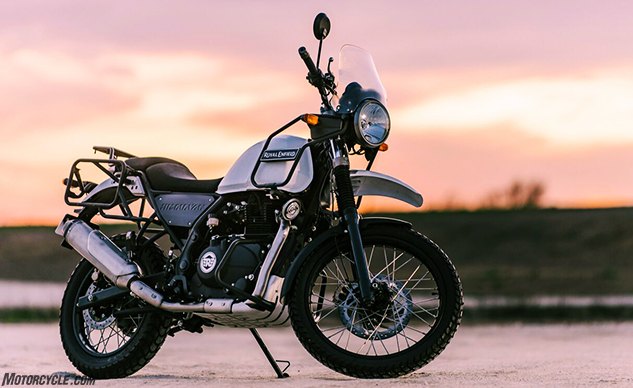
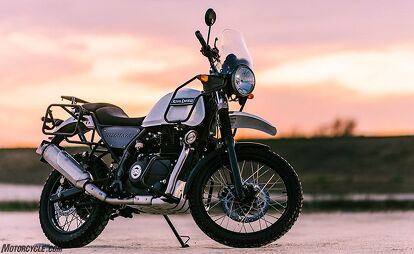
































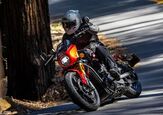
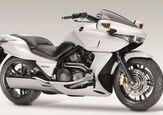
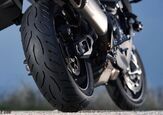
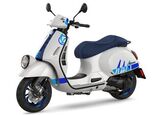
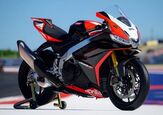
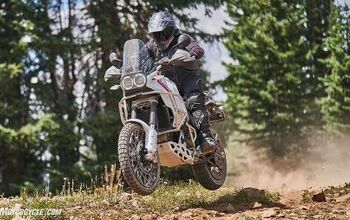
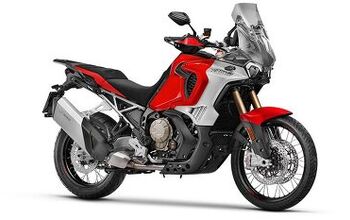
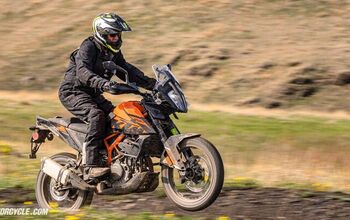
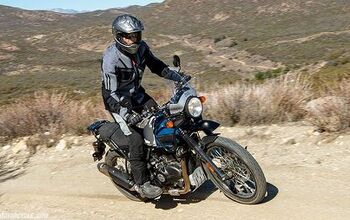
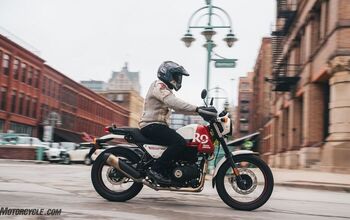
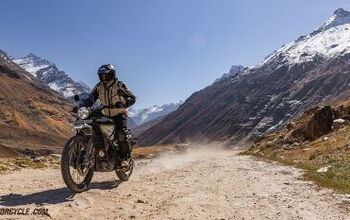
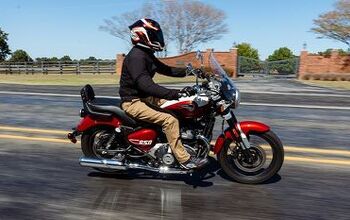
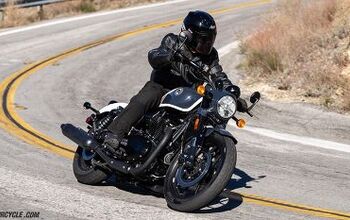
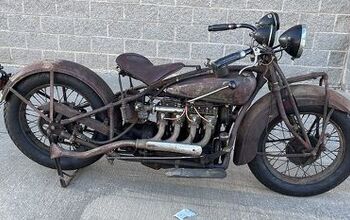
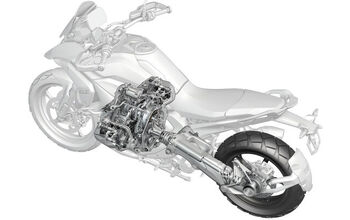
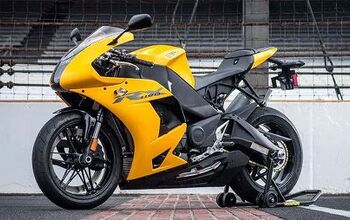
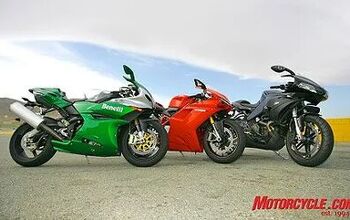
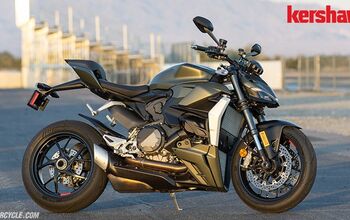
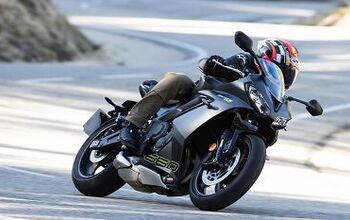
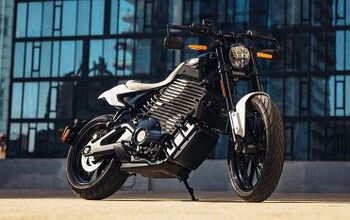
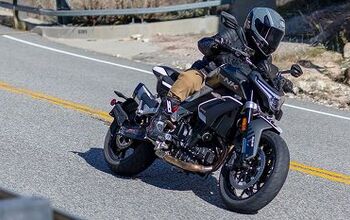
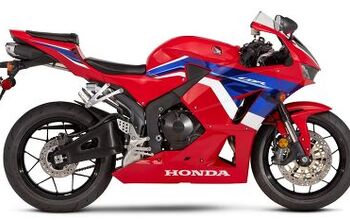

Comments
Join the conversation
Scroll to 1:45 for some light trailside repairs. These really are "Adventure" bikes, because getting back from the middle of nowhere in India is a real adventure - LOL
https://www.youtube.com/wat...
Six points better than a BMW G310GS, without ABS---nonsense!